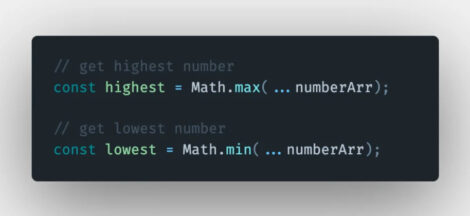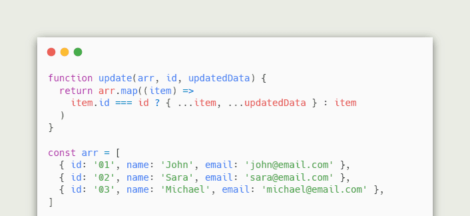Why does parseInt(0.0000005) in JavaScript print 5? An amazing question!
Preface
Recently, I have had a strange problem when developing a project, parseInt (0.0000005) === 5 😱. Normally, the output 0 is correct, but why 5? Let’s explore this problem together.
1. When do you use parseInt?
First of all, when do you usually use parseInt? Most of the time, we use it to parse a string and return its integer part. With this question, let’s take a look at the parseInt method.
2. Some things about parseInt
As per the MDN docs, “the parseInt(string, radix) function parses a string argument and returns an integer of the specified radix (the base in mathematical numeral systems).”
Syntax
parseInt(string)
parseInt(string, radix)Example
parseInt('0.5') // 0
parseInt('0.5') // 0
parseInt('0.05') // 0
parseInt('0.005') // 0
parseInt('0.0005') // 0
parseInt('0.00005') // 0
parseInt('0.000005') // 0
parseInt('015') // 15
parseInt('015', 8) // 13
parseInt('15px', 10) // 153. How does parseInt convert numbers?
When the first parameter of parseInt is a number, how does it parse?
The truth of parseInt(0.0000005) === 5 is also here…
3.1. The first step? Convert the number to a string.
Let’s check the values on string-based using the String function to see what is the output for each of these:
String(0.5); // => '0.5'
String(0.05); // => '0.05'
String(0.005); // => '0.005'
String(0.0005); // => '0.0005'
String(0.00005); // => '0.00005'
String(0.000005); // => '0.000005'
String(0.0000005); // => '5e-7' pay attention here3.2. The second step is to do the rounding operation.
As the user SeyyedKhandon explains in his Stack Overflow answer:
“When we use parseInt(0.0000005), it is equal to parseInt('5e-7') and based on the definition:
parseInt may interpret only a leading portion of string as an integer value; it ignores any code units that cannot be interpreted as part of the notation of an integer, and no indication is given that any such code units were ignored.
parseInt(0.0000005)parseInt('5e-7') // 5Finally, the answer will return 5 only because it is the only character that is a number till a noncharacter e, so the rest of it e-7 will be discarded.”
4. How to get the integer part of a floating-point number safely?
The following Math.floor() function is recommended:
Math.floor(0.5); // => 0
Math.floor(0.05); // => 0
Math.floor(0.005); // => 0
Math.floor(0.0005); // => 0
Math.floor(0.00005); // => 0
Math.floor(0.000005); // => 0
Math.floor(0.0000005); // => 05. Learn by analogy
Now, can you explain why parseInt(99999999999999999999999999) is equal to 1?





 Clean Code in TypeScript
Clean Code in TypeScript